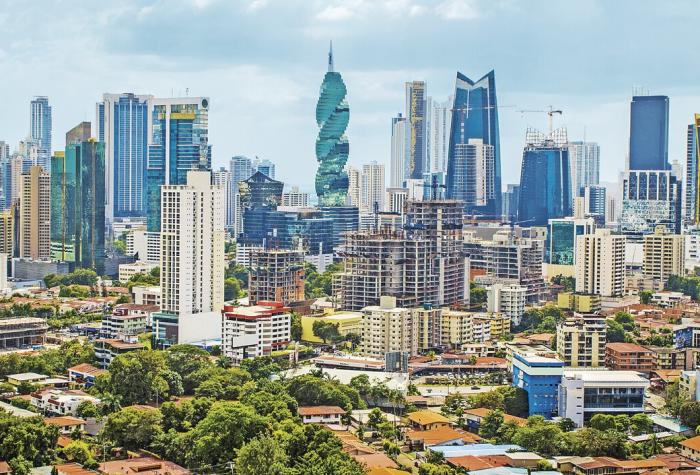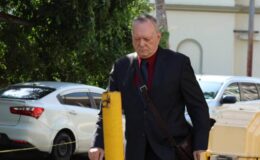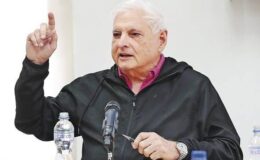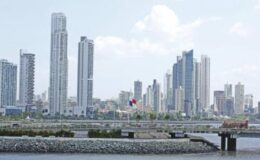Great article about the “Impunity” I have mentioned occurring in Panama. Global “Black List”
- By : James Bryson
- Category : Economy, Financials, Journalism, Political FRAUD

While the government is preparing for a face-to-face meeting with the Gafi in May and September, the World Compliance Association, a chapter in Panama, says that the first problem that Panama has to tackle is ‘to see the real problems as a country when it comes to to comply with the laws.
https://www.laestrella.com.pa/nacional/220318/listas-grises-negras-debe
Until now, Panama remains on the list of tax havens and non-cooperative countries of the European Union and the Financial Action Task Force (FATF), despite the fact that the National Government assures that the country has shown “tangible progress” in compliance with international standards.
On March 4, the International Financial Action Task Force (FATF) gave Panama an ultimatum and “strongly” asked it to demonstrate significant progress in completing its action plan before June 2022 (its term expired in January 2021). ); Otherwise, it would take “the next steps”, with the consequent threat of putting the country on a “black list” of tax havens, which only includes Iran and North Korea.
Despite being late in complying with the action plan to which the country committed, the Minister of Economy and Finance, Héctor Alexander, said on March 15 that “no” he foresees that Panama will enter a Gafi blacklist. , however, is aware that they must speed up actions to get rid of this risky rating for the country’s economy.
Thus, in a race against the clock, in the coming months of May and September 2022, Panama will have to meet again in a face-to-face meeting with the Gafi where it will be able to demonstrate its “tangible” progress, announced on March 9 the Vice Minister of the MEF, Jorge Almengor.
PRESIDENT OF THE WCA
On January 11, the last face-to-face meeting was held, in which the country had its opportunity to publicize the progress of the action plan to which it committed itself with the Gafi, but failed to convince the intergovernmental entity, whose objective is to set standards and promote the effective implementation of legal, regulatory and operational measures to combat money laundering, the financing of terrorism and the proliferation of weapons of mass destruction, and other threats.
“The idea is that during this year we can achieve an important point of progress that in the end allows us to request (the Gafi) a literal review,” Almengor said last week during the presentation of the ‘Evolution of the banking system and its role in the economic recovery”, organized by the Superintendence of Banks of Panama.
He emphasized that removing the country from these lists “is the number one priority at the government level, because regardless of the economic recovery we are achieving, it is crucial and fundamental that the country, from an international point of view, has a positive perspective.”
For the president of the Cciap, José Ramón De Icaza, keeping Panama on a list of this nature at this time “limits Panama’s ability to attract more direct foreign investment to the country.”
But it also “limits our ability to remain competitive in the international arena. We have to adapt our service platform and that adaptation of the service platform obviously requires that we be able to adapt our regulatory framework to be able to comply with the different international provisions,” Icaza said.
The progress
The government argues that with the dates against and despite facing an interruption due to covid-19, the country has completed 8 of the 15 required actions, and acknowledges that 7 actions are still missing, but has presented significant and tangible progress in a way that keep going.
Among the 7 remaining actions are included legislative modifications, exhaustive development of risk analysis, implementation of regulations, development of a registry of final beneficiary and the increase in investigations, focused on predicate offenses abroad, among others, according to the information. official.
“The measures they are taking to get off the lists are those in which they have to deepen actions. One of them has to do with the information system, which is being worked on… and the other has to do with the constant monitoring that we must have with respect to all those companies that are incorporated into our country,” said Alexander in a room courtesy at the Chamber of Commerce, Industries and Agriculture of Panama.
Almengor, for his part, said that progress is being made as much as possible, not only in what has already been reported, but, for example, in presenting publicly and formally the implementation through a regulation of an executive decree of the law that establishes the registry of the final beneficiary, some other aspects related to compliance, the progress of the provision of this information to the regulator, and, of course, everything that has been achieved in terms of responding to requests for exchange of information both bilateral as well as multilateral.
“It is important to reach that head-to-head in May with some additional points and try to close some of the points that remain pending from the 7,” Almengor said.
The problem
According to the president of the World Compliance Association (WCA), Panama chapter, Tabaré Albarracini, the first problem that Panama has to get off the lists is “to see the real problems that we have as a country when it comes to complying with the laws.”
He indicated that we have a Law 23 of 2015 that is already practically seven years old, whose execution and implementation cannot be said to be 100%. We have the same example with the reports and statistics that can be seen on the website of the Financial Analysis Unit (UAF).
There, “we see that while the universe of non-financial subjects is much larger than the financial sector (the non-financial sector includes lawyers, accountants, pawnbrokers, real estate, among others), suspicious transaction reports… below what we have with the financial sector with banks, finance companies, insurance companies”.
“This is a clear sign that there is still no effective implementation within the private sphere, of the execution of reports, based on suspicious activities; and that is something that the authorities see when making their evaluations,” said Albarracini.
Similarly, he stressed that “to date in the country there is no complete implementation of the final beneficiary law that directly involves resident agents, law firms and independent lawyers who perform this service.”
He indicated that “just in December of last year and in January 2022, at least the registration of these non-financial subjects in the superintendency of non-financial entities was completed. That is another point that could be said that we are partially complying with.”
Another “deficiency is the issue of being able to demonstrate that there is no impunity in Panama and that cases of investigations for money laundering or tax evasion end in convictions,” said the president of the WCA.
For Albarracini, obviously the case of tax evasion “is something that has been implemented recently, because until not long ago tax evasion was not a crime. So that can take a while for it to start happening. However, on the subject of money laundering and high-profile corruption cases, to date there has been nothing that makes noise to show that there is no impunity in the country.”
Almengor, for his part, recognized that “we still have important challenges and a lot to advance, and in fact important designations have been given that are very relevant throughout the prevention system and ecosystem, mainly in the superintendence of non-financial subjects”, but “At the end of the day we have to work on an accumulation of efforts of what has been done in recent months, and in recent years.”
He stressed that the representatives and diplomats of European countries, here in Panama, for example, recognize the efforts that the country has made.
However, we still “have certain information on effectiveness that we have to show, but that is a natural process and a natural evolution of the entire system, because we obviously need the judicial system, together with the Public Ministry and the prevention system, regulation and sanction is effective, and that this is noted by international organizations.
Panama needs a real implementation
However, Albarracini stated that “in order to get off the lists, Panama needs a real and forceful implementation, that can be proven and that are not simply words that non-financial subjects are implementing Law 23 in matters of money laundering prevention and programs. of prevention within companies, to avoid money laundering and tax evasion.
Additionally, it is necessary to provide more training to the technical personnel of the different institutions that help to supervise all these matters. “We have very little time left to show these advances and the task seems titanic. We hope that the new team that is joining some key positions to achieve this goal, listen to all those involved in the sector to reach the common goal that we all want, which is to be able to remove the country from the lists!”, Albarracini pointed out.



No Comments